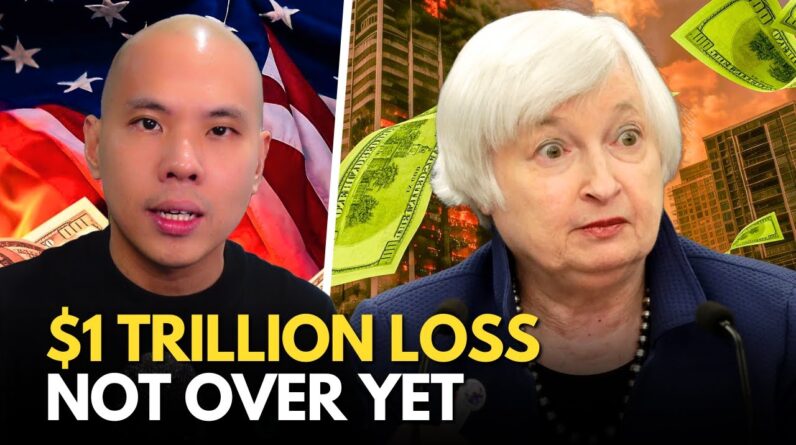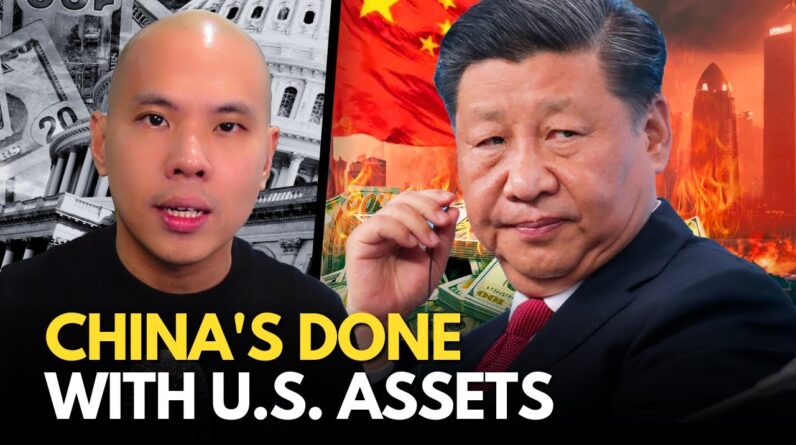De-dollarization is an ongoing trend where countries are reducing their dependence on the United States dollar as a global reserve currency. This shift is causing ripples in the international financial system and could ultimately lead to the decline of U.S. economic and political dominance. In this blog post, we will explore the implications of de-dollarization and how it might affect the global balance of power.
How De-Dollarization is Leading to the Decline of U.S. Dominance
Introduction
For decades, the U.S. dollar has been the world’s leading reserve currency. Other countries pegged their own currencies to it, and it was used in international trade. This increased the economic and political power of the United States, allowing its government and corporations to have an outsized impact on the global economy. However, de-dollarization is happening at a stunning pace, as the dollar’s share of global reserves has fallen from 73% to 58% in the past two decades.
The Trend Away from the Dollar
Around the world, nations are looking for alternatives to the dollar. They are diversifying their reserves and looking to trade in other currencies. This trend is not limited to U.S. adversaries; even U.S. allies are beginning to question the dollar’s primacy. The reason for this is simple: the U.S. government is not taking steps to prevent the world from moving away from the dollar.
The US Government’s Inaction
Despite the alarming trend, the U.S. government has not taken concrete steps to save or delay the dollarization process. The current Federal Reserve Chair, Jerome Powell, denies the role of the dollar in keeping the U.S. economy dominant. He is not alone; many U.S. policymakers believe that the dollar’s reserve status is the reason for America’s economic dominance, not the other way around. However, this is not an accurate picture of the global economy.
The Dollar’s Weaponization and Increasing Sanctions
One of the driving forces behind de-dollarization is the U.S. government’s frequent use of sanctions and the weaponization of the dollar. Increasingly, countries are looking to lessen their reliance on the dollar due to the potential damage that sanctions can cause to their economies. Furthermore, as more countries move away from the dollar, the United States loses its ability to unilaterally enforce sanctions, further weakening its ability to influence global events.
Janet Yellen’s Admittance
Even the former U.S. Treasury Secretary, Janet Yellen, admits that using sanctions is sabotaging the dollar’s reserve status and can undermine the hegemony of the dollar. She recognizes that the dollar lends more economic power to the U.S. than the other way around. If the U.S. is unable to maintain the dollar’s status as the world’s reserve currency, it may lose its ability to project its economic and political power globally.
Concrete Steps that Need to be Taken
Concrete steps need to be taken to save or delay the dollarization process. One possibility is for the U.S. government to invest more in infrastructure, education, and research and development to demonstrate the U.S.’s potential for long-term economic growth and stability. This would increase confidence in the dollar and the U.S. economy, potentially slowing the trend away from the dollar. Another possibility is for the U.S. to cooperate with other countries to create a more stable global financial system. By working with other countries, the U.S. can maintain a leadership role in the global economy while acknowledging that the world is changing and adapting to the shifting economic and political realities.
FAQs
-
What is de-dollarization?
De-dollarization is the trend away from using the U.S. dollar as the world’s reserve currency and the adoption of alternative currencies or trade mechanisms. -
Why are countries moving away from the dollar?
Countries are looking to lessen their reliance on the dollar due to US dollar weaponization that can cause potential damage to their economies and increasing sanctions. -
What is the U.S. government’s stance on de-dollarization?
The U.S. government is not taking any concrete steps to prevent the world from moving away from the dollar. -
Why is the dollar’s reserve status so important to the U.S.?
The dollar’s reserve status is the reason for America’s economic dominance, allowing its government and corporations to have an outsized impact on the global economy. -
What steps can be taken to slow down de-dollarization?
The U.S. government can invest more in infrastructure, education, and research and development or work with other countries to create a stable global financial system.










